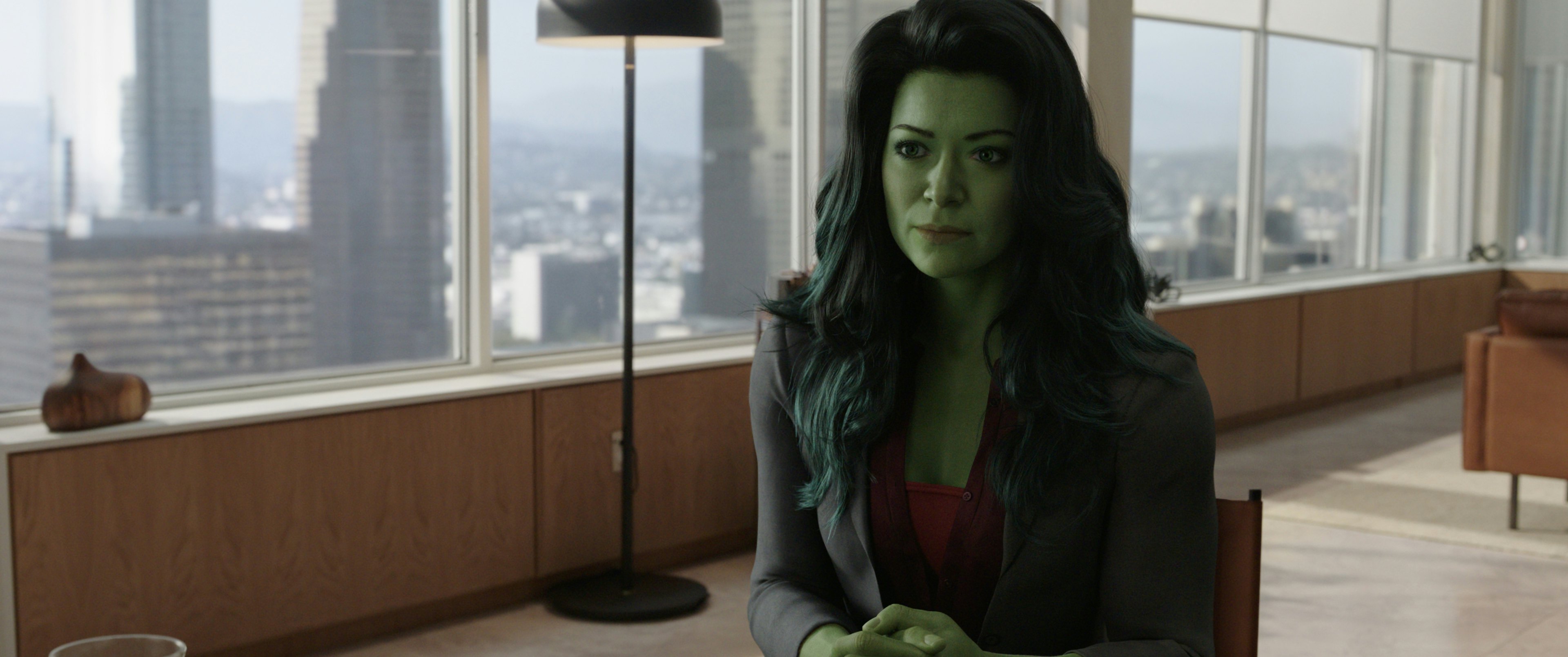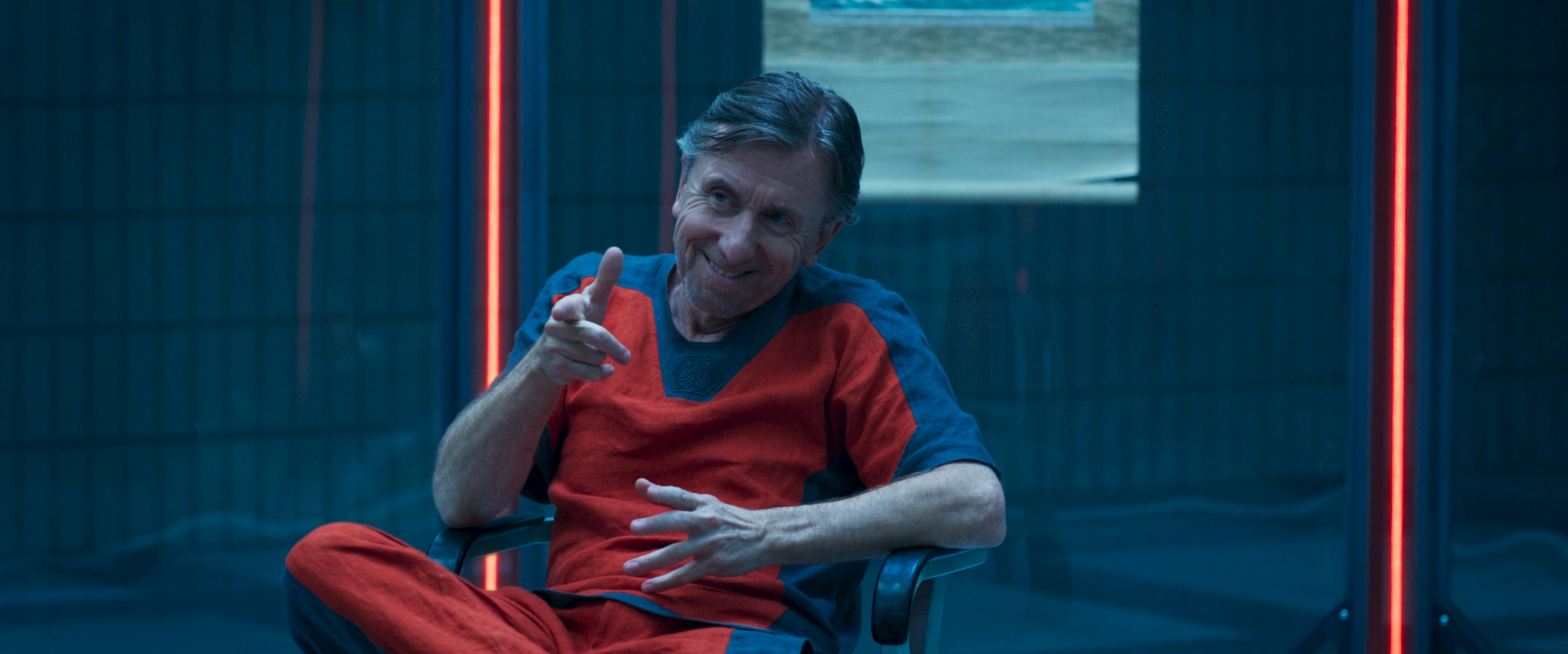
Your honor, I’d like to present more evidence of the X-Men’s presence in the Marvel Cinematic Universe. In Episode 3 of She-Hulk: Attorney At Law, Jennifer Walters (Tatiana Maslany) makes a case for her client/cousin’s ex-archenemy Emil Blonsky (Tim Roth), also known as the “Abomination.” Emil is seemingly repentant, citing his years in supermax prison as rehabilitating his character. (We’ll see.)
But the most notable part of the episode isn’t Jennifer helping the Hulk’s biggest nemesis. It’s a throwaway line delivered by a judge explaining the terms of Emil’s release. Minor spoilers ahead.
While Emil is allowed to walk away a free man, he’s ordered to wear an inhibitor collar to prevent his transformation into Abomination. The judge doesn’t explain exactly what kind of inhibitor collar is given to Emil, nor is it seen. But the deliberate use of the words “inhibitor collar” is enough to make X-Men fans take notice.
The X-Men Connection in She-Hulk

Inhibitor collars are closely associated with the X-Men. They were first seen in the iconic issue #141 of Uncanny X-Men, which begins the all-important “Days of Future Past” storyline by Chris Claremont and John Byrne.
In the story’s then-dystopian future of 2013, which takes place after the passage of the Mutant Control Act in 1988, most of the universe’s surviving mutants are forced to live in internment camps and are kept from using their powers with inhibitor collars.
Beyond comics, inhibitor collars have appeared in plenty of X-Men media, ranging from movies like 2019’s Dark Phoenix, 2018’s Deadpool 2, and 2014’s X-Men: Days of Future Past to several episodes of the short-lived Fox series The Gifted.

A crucial detail is that the collars prevent the conscious use of a mutant’s power, rather than neutralizing the powers outright. This can result in lingering headaches, although the comics haven’t gone into much detail beyond that.
In fact, there isn’t much of a story behind inhibitor collars at all. We don’t even know who invented the technology. Both the X-Men films and The Gifted, which was set in an alternate timeline, portrayed the collars as designed and manufactured by Trask Industries, but that’s never been confirmed in the comics.
With inhibitor collars now in She-Hulk: Attorney At Law, mutants may have a more significant presence in the MCU than we thought. They’re at least important enough that there’s a need for collars to exist. One can wonder if this means Abomination is classified as a mutant in the MCU, or if inhibitor collars behave the same for superpowered non-mutants as they do for actual mutants, but that’s academic. The point is that they’re there, and there’s probably a reason She-Hulk used the exact phrase “inhibitor collar” to refer to them.
It isn’t known who designed the MCU’s inhibitor collars either. It could be Stark Industries, rival Hammer Industries, or maybe even startup A.I.M., which hasn’t been heard from since Iron Man 3. She-Hulk has only given fans a glimpse into the future of the MCU, which is bound to be populated by mutants eventually. Until it is, there might be a good reason we’re not seeing mutants anywhere: They’re inhibited.
She-Hulk: Attorney At Law streams new episodes Thursdays on Disney+.







